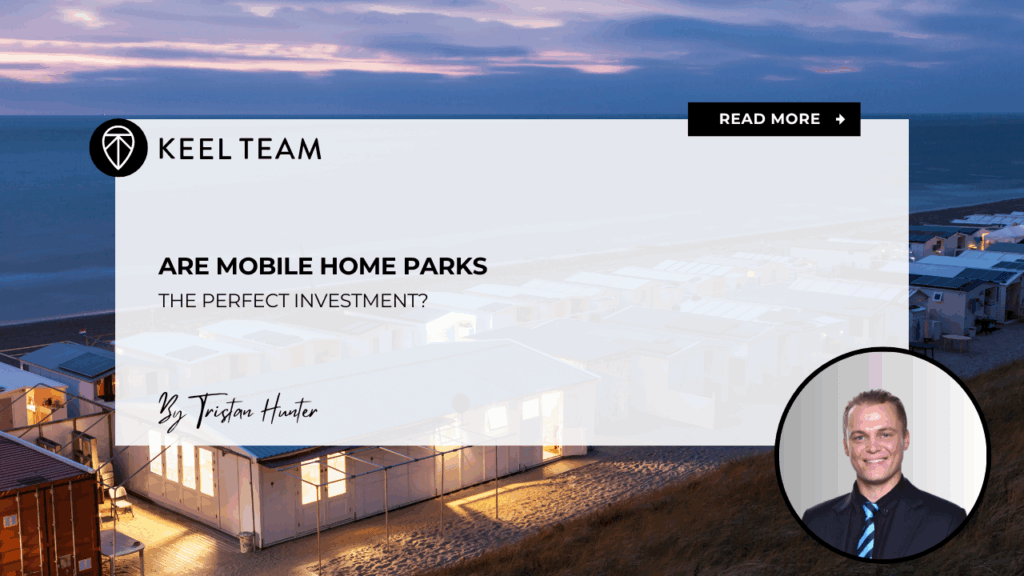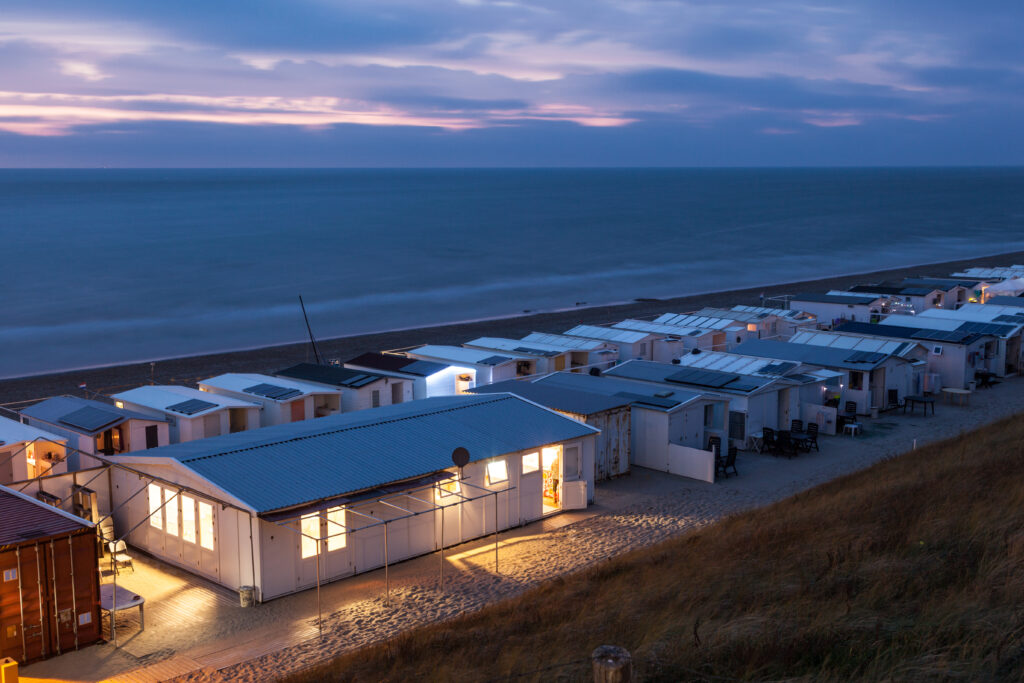Are Mobile Home Parks the Perfect Investment?
-
 Tristan Hunter - Investor Relations
Tristan Hunter - Investor Relations

Mobile home parks may represent a compelling opportunity for investors seeking stable cash flow, long-term growth, and a hedge against economic uncertainty. With the rising demand for affordable housing and the unique structure of mobile home park ownership, this niche real estate sector could offer significant advantages. However, like any investment, it can come with risks and challenges that require careful consideration. Below, we explore why mobile home parks might be an attractive investment, their potential benefits, and key factors to evaluate before diving in.
Why Mobile Home Parks May Be a Strong Investment
Mobile home parks could provide a unique combination of affordability, demand, and operational efficiency, making them an appealing choice for real estate investors. Let’s break down the reasons why they may stand out in today’s market.
High Demand for Affordable Housing
The need for affordable housing continues to grow across the United States. As traditional homeownership becomes less attainable for many, mobile home parks may offer a practical solution. According to the U.S. Census Bureau, the median home price in 2023 was approximately $412,000, pricing out many low- and middle-income families. In contrast, mobile homes often cost between $20,000 and $80,000, making them a budget-friendly alternative.
Residents of mobile home parks typically own their homes but rent the land, creating a steady demand for well-maintained lots. This dynamic could ensure consistent occupancy rates, as residents are less likely to relocate due to the high cost and logistical challenges of moving a mobile home. For investors, this may translate into predictable rental income.
Low Maintenance and Operating Costs
Unlike traditional rental properties, mobile home park owners generally do not maintain the homes themselves. Residents own and maintain their homes, reducing the landlord’s responsibilities to common areas, utilities, and infrastructure. This structure may lead to lower operating costs compared to apartment complexes or single-family rentals.
Additionally, mobile home parks often require less frequent tenant turnover. Since residents own their homes, they tend to stay longer, potentially reducing vacancy rates and the costs associated with marketing and preparing units for new tenants. Investors might find this aspect particularly appealing, as it could enhance profitability.
Potential for Stable Cash Flow
Mobile home parks may generate consistent cash flow due to their unique business model. Lot rents are typically lower than apartment rents, making them affordable for tenants and less sensitive to economic downturns. Even during recessions, people need affordable places to live, and mobile home parks may benefit from this resilience.
Moreover, investors can potentially increase revenue by improving park amenities, such as adding community spaces, upgrading utilities, or offering additional services like storage or laundry facilities. These value-add strategies could boost lot rents and attract new residents, further stabilizing income streams.
Download our FREE eBook on the Top 20 things to know BEFORE investing in mobile home parks!
Key Advantages of Investing in Mobile Home Parks
Beyond the fundamentals, mobile home parks may offer specific advantages that set them apart from other real estate investments. Here are some compelling reasons to consider this asset class.
Scalability and Portfolio Diversification
Mobile home parks may allow investors to scale their portfolios efficiently. A single park can house dozens or even hundreds of homes, enabling investors to manage multiple revenue streams under one property. This scalability could make mobile home parks more efficient than managing scattered single-family rentals.
Additionally, mobile home parks may diversify an investment portfolio. Their unique market dynamics—driven by affordable housing demand—may reduce correlation with other real estate sectors, such as commercial or luxury residential properties. This diversification could help mitigate risk during market fluctuations.
Barriers to Entry for New Supply
The supply of mobile home parks is relatively constrained, which may benefit existing owners. Zoning regulations and community resistance often make it difficult to develop new mobile home parks. According to the National Low Income Housing Coalition, many municipalities impose strict zoning laws that limit where mobile home parks can be built. This scarcity could protect existing parks from oversupply, potentially supporting long-term appreciation and rental rate growth.
Potential for Value-Add Opportunities
Mobile home parks often present opportunities to increase value through strategic improvements. For example, upgrading outdated infrastructure, such as water or electrical systems, could justify higher lot rents. Adding amenities like playgrounds, community centers, or green spaces may attract higher-quality tenants. Investors with a knack for property management might find these opportunities particularly lucrative.
Risks and Challenges to Consider
While mobile home parks may offer attractive benefits, they are not without risks. Understanding these challenges is crucial for making informed investment decisions.
Regulatory and Zoning Hurdles
Mobile home parks often face strict regulatory oversight. Local governments may impose rent control, environmental regulations, or zoning restrictions that could limit profitability. For instance, some areas cap lot rent increases, which may restrict revenue growth. Investors should thoroughly research local laws and consult legal experts before purchasing a mobile home park.
Tenant and Community Management
Managing a mobile home park requires balancing tenant relations with business objectives. Residents may form tight-knit communities, and changes like rent increases or new rules could lead to pushback. Effective communication and community engagement are essential to maintaining a positive environment and minimizing turnover.
Economic and Market Risks
While mobile home parks may be more resilient during economic downturns, they are not immune to market risks. A decline in local employment or economic conditions could affect tenants’ ability to pay rent. Additionally, older parks may require significant capital for repairs or upgrades, which could impact returns. Conducting thorough due diligence on a park’s condition and market trends is critical.

How to Get Started with Mobile Home Park Investing
If mobile home parks seem like a promising investment, here are some steps to begin your journey.
Research and Education
Start by learning about the mobile home park industry. Read books, attend webinars, or join real estate investment groups focused on mobile home parks. Resources like the Mobile Home Park Store or industry blogs may provide valuable insights. Understanding the market, financing options, and operational strategies is essential before committing capital.
Evaluate Potential Properties
Look for mobile home parks in areas with strong demand for affordable housing and favorable zoning regulations. Analyze the park’s financials, including occupancy rates, lot rents, and operating expenses. Hire professionals, such as appraisers or engineers, to assess the property’s condition and identify any hidden costs.
Secure Financing
Financing a mobile home park may differ from traditional real estate investments. Some lenders specialize in mobile home park loans, offering terms tailored to this asset class. Explore options like conventional loans, seller financing, or partnerships to fund your purchase. Ensure the park’s cash flow supports debt payments and operational costs.
Build a Management Team
Successful mobile home park investing often requires a reliable team. Consider hiring property managers, maintenance staff, or legal advisors with experience in mobile home parks. A strong team can help navigate challenges and maximize the park’s potential.
Why Mobile Home Parks Could Be Your Next Investment
Mobile home parks may offer a compelling blend of affordability, demand, and operational efficiency, making them an attractive option for real estate investors. Their potential for stable cash flow, scalability, and value-add opportunities could set them apart from other property types. However, regulatory hurdles, tenant management, and market risks require careful consideration.
By conducting thorough research, evaluating properties diligently, and building a capable team, investors may position themselves for success in this niche market. While no investment is guaranteed, mobile home parks could provide a unique opportunity to capitalize on the growing need for affordable housing. If you’re looking to diversify your portfolio or explore a resilient real estate sector, mobile home parks might be worth considering.
Are you looking for MORE information? Book a 1-on-1 consultation with Andrew Keel to discuss:
- A mobile home park deal review
- Due diligence questions
- How to raise capital from investors
- Mistakes to avoid, and more!
Disclaimer:
The information provided is for informational purposes only and is not investment advice or a guarantee of any kind. We do not guarantee profitability. Make investment decisions based on your research and consult registered financial and legal professionals. We are not registered financial or legal professionals and do not provide personalized investment recommendations.

Tristan Hunter - Investor Relations
View The Previous or Next Post
Subscribe Below 👇





